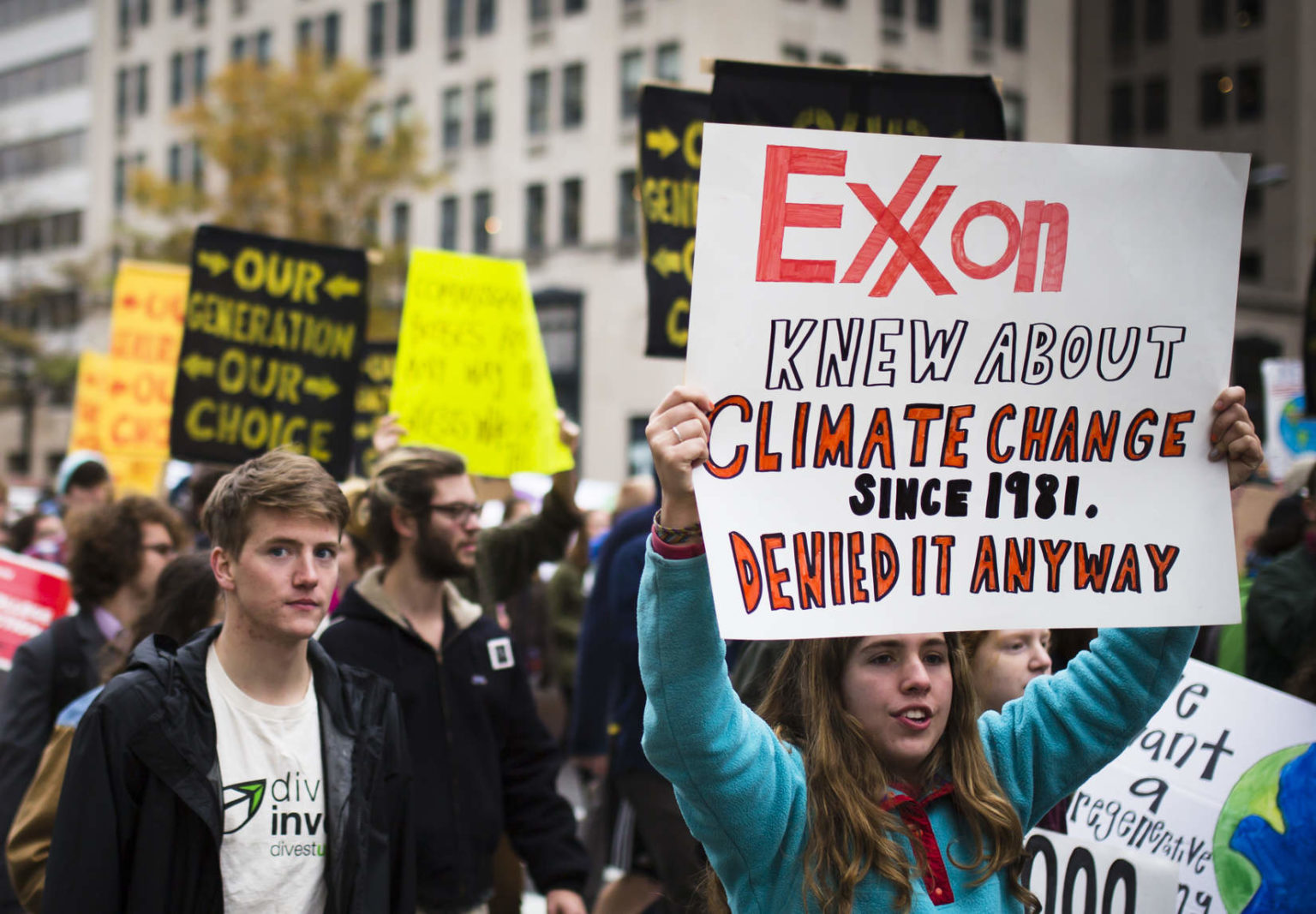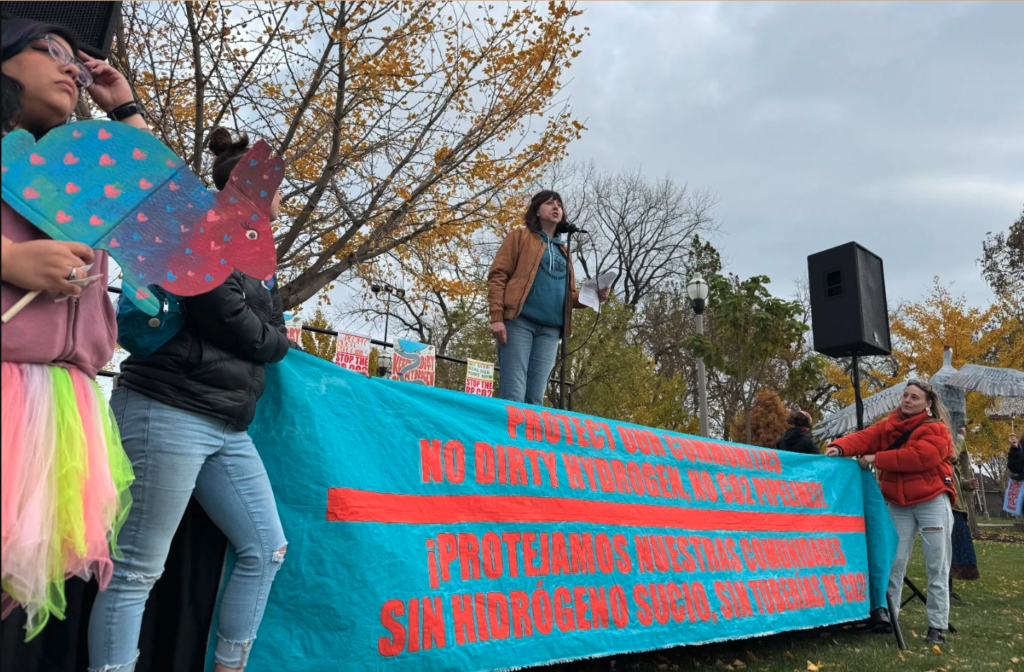BONN, GERMANY – Fossil fuel companies have known for a long time that their products significantly contribute to climate change. But it wasn’t until recently that scientists began to understand just how much of the climate crisis could be attributed to them – and, as a result, how much those corporations could be sued for.
Earlier this year, research from the Union of Concerned Scientists showed the largest 90 fossil fuel companies were responsible for about 50 percent of current warming.
Such research into how much damage can be attributed to fossil fuel companies is “vital” to bring lawsuits against those corporations, and holding them to account in the courts, Sophie Marjanac, a lawyer with Client Earth told an audience at the international climate negotiations currently underway in Bonn.
Thanks to the research, “we have evidence of the deliberate concealment of risk from some of these companies,” Marjanac said.
She continued: “There is a narrative out there that we are all responsible for climate change because we use electricity and drive cars. However, I think the evidence now shows that there are some that are more responsible than others.”
Peter Frumhoff, chief scientist for the Union of Concerned Scientists, told the audience in Bonn that researchers’ understanding of the extent to which specific companies were responsible form climate impacts was “rapidly improving”.
“Even in cases where we don’t know exactly how climate change is changing the probability [of extreme events] we can say and provide information on how climate change is altering the damages.”
He said that after recent natural disasters like Hurricane Harvey, people were increasingly asking when fossil fuel companies would be held responsible for the impacts of people using their products.
Earlier research from Climate Central, for example, showed emissions from human activity were responsible for about $2 billion of extra damage done by Hurricane Sandy when it hit New York City in 2012. And Frumhoff said such research could increasingly be used to help people work out how much of the impact of such extreme weather events were fossil fuel companies’ fault.
Lobbying and Blame
Lawsuits seeking to claw back some of the damage could become the “new normal”, Marjanac said, as scientists continue to gain a better understanding of how much damage can be attributed to the fossil fuel industry.
“We have significant documentary evidence about the way in which many of these companies have influenced and lobbied not only politicians to prevent action on climate change but also public opinion by sowing doubt in the minds of the public about the impacts of their products.”
She said “it’s difficult to know how this ends”, but — as with dangerous industries such as the tobacco lobby that have gone before — it normally ends with governments passing new laws to limit the damage they can cause.
As the impacts of climate change bite, “increasingly, legitimate questions will be asked in both the court of public opinion and the court of law about who will bear the costs”.
Photo: Johnny Silvercloud via Flickr CC BY–SA 2.0 Updated 20/11/2017: The spelling of Marjanac was corrected.
Subscribe to our newsletter
Stay up to date with DeSmog news and alerts







